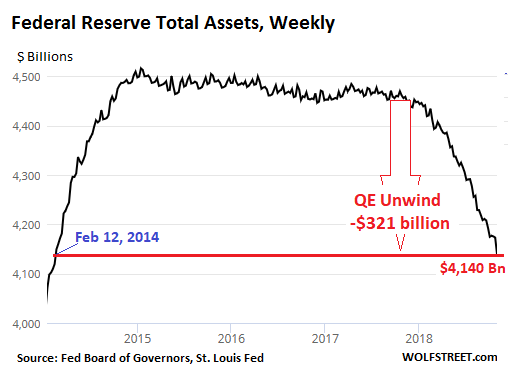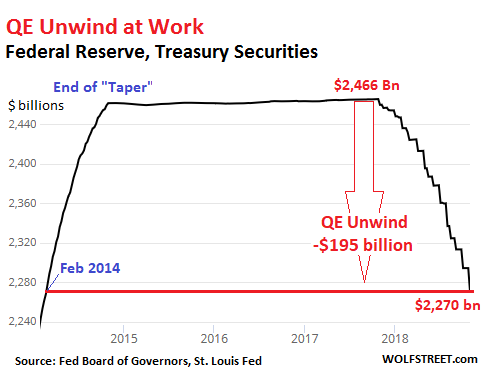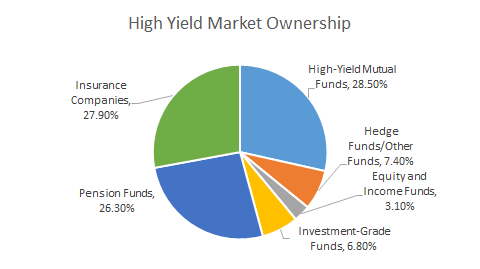
Pablo Picasso Bathers 1918

This would only happen if there’s progress in talks….
• Trump Plans ‘Meeting Plus Dinner’ With Xi Jinping After G20 Summit (SCMP)
US President Donald Trump has offered to host a dinner for Chinese President Xi Jinping on December 1 in Buenos Aires after the G20 leaders summit, an invitation Beijing has tentatively accepted, people familiar with the arrangement have told the South China Morning Post. The Post reported two weeks ago that Trump and Xi had agreed to meet on November 29, the day before the official opening of the summit, but the meeting was rescheduled and upgraded into a “meeting plus dinner” at Trump’s request, the people said, who declined to be identified as the information is still classified.
A “Western-style” sit-down dinner after the G20 summit could offer the two leaders more time to talk than a chat on the sidelines of the summit and could offer a more conducive atmosphere for negotiations. “Trump originally planned to leave Buenos Aires as soon as the G20 agenda finished, but he has decided to postpone his departure to make this dinner happen,” a source said. It is not yet known what specific issues will be on the agenda. The two leaders had a call on Thursday, officially agreeing to meet in Argentina and laying the ground for further discussions on trade and North Korea.
Trump said in a tweet that he had a “long and good [phone] conversation” with Xi, adding: “We talked about many subjects, with a heavy emphasis on Trade. Those discussions are moving along nicely with meetings being scheduled at the G20 in Argentina. Also had good discussion on North Korea!” The Chinese side issued a much longer statement about the phone call. According to the official Xinhua news agency, Xi told Trump that “both of us have good intentions for the healthy and steady development of Sino-US relations and for growth in Sino-US trade cooperation, and we shall make efforts to turn these intentions into reality.”

….but this may still be wishful thinking.
• Shares Soar As Trump Hints At Possible US-China Trade Deal (G.)
Asian shares have surged on reports that Donald Trump wants to reach an agreement with Chinese president Xi Jinping about the trade dispute that has dogged markets for months. The US president spoke to Xi on Thursday and later tweeted that trade talks with China were “moving along nicely” ahead of face-to-face talks between the pair at the G20 summit in Argentina later this month. But Bloomberg later reported that the phone call – in which Trump and Xi both expressed optimism about resolving their bitter trade disputes – prompted Trump to ask officials to begin drafting potential terms. The report lit a fire under stock markets that have beset by fears of a full-blown trade war between the world’s two biggest economies.
The Nikkei was up 2.3% in Tokyo, the Hang Seng climbed 3.35% in Hong Kong and the Shanghai Composite was up 3%. There was a also a strong gain of 3% for the export-oriented Kospi index in South Korea. US stock futures rose 0.7% and the FTSE100 is set for a jump of almost 1% when it opens in London on Friday morning. The US and China’s tit-for-tat tariffs on each other’s goods have rumbled on for months as Trump pledges to help create more US manufacturing jobs. The tariffs have been blamed for a weakening of China’s mighty manufacturing sector which this week showed a marked slowdown in activity.

Shedding $50 billion a month. Mayhem in dollar markets.
• The Fed’s QE Unwind Hits $321 Billion (WS)
Over the four-week period from October 3 through October 31, the Federal Reserve shed $35 billion in assets, according to the Fed’s weekly balance sheet released Thursday afternoon. This brought the balance sheet to $4,140 billion, the lowest since February 12, 2014. Since October 2017, when the Fed began its QE unwind, or “balance sheet normalization,” it has now shed $321 billion. The Fed acquired Treasury securities and mortgage-backed securities (MBS) as part of QE, which ended in 2014. Between the end of QE and the beginning of the QE Unwind in October 2017, the Fed replaced maturing securities with new securities to keep their levels roughly the same.

In October last year, the Fed kicked off the QE unwind and began shedding those securities. But the balance sheet also reflects the Fed’s other activities, and the amount of its total assets is always higher than the sum of Treasury securities and MBS it holds. October was a new milestone: the QE unwind left the ramp-up phase and entered the cruising-speed phase, according to the Fed’s plan. In the cruising-speed phase, the Fed is scheduled to shed “up to” $30 billion in Treasuries and “up to” $20 billion in MBS a month, for a total of “up to” $50 billion a month. From October 3 through October 31, the Fed’s holdings of Treasury Securities fell by $23.8 billion to $2,270 billion, the lowest since February 19, 2014. Since the beginning of the QE-Unwind, the Fed has shed $195 billion in Treasuries:


The amount of high risk debt owned by pension funds is something else. As I always say, remember the days of AAA?
• Debt Is Back But This Time It’s Corporate (GolemXIV)
On Wednesday Feb 7th 2007 HSBC issued a profit warning. It was the first in its 142 year history. The bank told its share holders it would have to take an unprecedented charge of $10.5 billion because one of its units, its sub prime lender, was in deep trouble. And so began the sub prime crisis. Today GE issued a profit warning and cut its dividend to share holders from 12 cents to 1 cent. It is only the third time since the Great Depression that GE has reduced its dividend in this way. It told its share holders it would be taking a $22 Billion charge because one of its units, its power unit, is in deep trouble. GE has about $116 billion in debt. In 2007 the banks had flooded the global market with sub-prime loans.
The banks were also holding many of those same loans themselves or had transferred them to Special Purpose Vehicles (SPVs) they had set up, staffed and lent money to. Today it is not the banking world which stands at the centre of the storm but the corporate world. In the last years they have flooded the market with junk rated bonds. At the same time they are also burdened with high yielding, leveraged and covenant- lite loans. Taken together they are about $2.4 Trillion of debt. 2007 sub prime loans. 2018 corporate junk bonds and leveraged loans. 2007 banks and SPVs funded by the banks. 2018? Where is this sub-prime corporate debt sitting today? Nearly half sits in Insurance Companies and Pension funds. Given the close ties between insurance and pensions this is not a happy picture.


“Some 44% of people said their expenses exceeded their income in the past year and they used credit to make ends meet.”
• The ‘True State’ Of Americans’ Financial Lives (MW)
The finances of Americans may not be as good as they look from the outside. Despite optimistic metrics like a nine-year-long bullish, if volatile, stock market, low unemployment levels, and consumer confidence levels nearing record highs, millions of Americans continue to struggle, a study released Thursday from financial consultancy nonprofit the Center for Financial Services Innovation (CFSI) found. Only 28% of Americans are considered “financially healthy,” according to a CFSI survey of more than 5,000 Americans. “Financial health enables family stability, education, and upward mobility, not just for individuals today but across future generations,” the CFSI says.
“Many are dealing with an unhealthy amount of debt, irregular income, and sporadic savings habits.” Some 44% of people said their expenses exceeded their income in the past year and they used credit to make ends meet. Another 42% said they have no retirement savings at all. Meanwhile, 17% of Americans are “financially vulnerable,” meaning they struggle with nearly all financial aspects of their lives, and 55% are “financially coping,” meaning they struggle with some but not all aspects of their financial lives. The recent volatility in the Dow Jones Industrial and S&P 500 has not helped Americans feel secure, experts say.

Can’t afford to start a family.
• The American Dream Feels Further Off Than Ever For Millennials (G.)
From adolescence to our mid-30s, my wife and I have followed every common precept of responsible young adulthood – what conservatives venerate as “the success sequence”. We finished high school (then college, then grad school). We charged into the labor market and have stayed there. We had kids in a stable marriage. Neither of us quit our jobs or took a year off to “find ourselves”. We cut coupons and buy food in bulk. We did this, in part, because we trusted what we believed was America’s basic bargain: work hard, play by the proverbial rules, and you’ll enjoy a healthy middle-class life. You’ll have a decent job, stable housing, affordable education and healthcare, and a clear route to retirement.
But that old, potholed path doesn’t deliver like it used to, even for responsible rule-followers like us. Here in our mid-30s, my wife and I are still chasing homeownership, that final, elusive piece of middle-class life. Today’s young families started to hit the labor market during the great recession. We’re buried in educational debt, and college costs for our kids are predicted to be even higher than ours. Housing near good-paying jobs is wildly expensive. Healthcare costs are uncertain. We’re less likely to have a guaranteed retirement pension through work, and current signals suggest that government-funded retirement supports will be significantly smaller, if they’re there at all. These are bread-and-butter issues.
While national political leaders are gridlocked on how to address the crises of widening inequality and limited upward mobility, we’re struggling to simply provide our children with the same opportunities that came relatively easily to earlier generations. Most young families aren’t cynical because the rich have private helicopter fleets and offshore bank accounts, per se. We’re frustrated because the American bargain we believed in is broken.

I don’t often disagree with Kimberley Strassel, but I do disagree with “the ascendant progressive movement blew an easy victory for Democrats.” It’s the old guard that blew it, Clinton, Pelosi, Waters, Feinstein.
• The Lesson of 2018 (Strassel)
In a few days the U.S. will have its midterm results, and the Beltway press corps will lecture us on the lessons. Don’t expect to hear much about the one takeaway that is already obvious: that today’s preferred progressive politics—of character assassination, mob rule, intimidation and wacky policies—is an electoral bust. It is not what is winning Democrats anything. It is what is losing the party the bigger prize. Six weeks ago, Democrats were expecting a blue wave to rival the Republican victory of 2010, when the GOP picked up 63 House seats. Everything was in their favor. History—the party in power almost always loses seats. Money—Democrats continue to outraise Republicans by staggering amounts.
The opposition—some 41 GOP House members retired, most from vulnerable districts where Donald Trump’s favorability is low. Democrats were even positioned to take over the Senate, despite defending 10 Trump-state seats. Democrats obliterated their own breaker in the space of two weeks with the ambush of Supreme Court nominee Brett Kavanaugh. The left, its protesters and its media allies demonstrated some of the vilest political tactics ever seen in Washington, with no regard for who or what they damaged or destroyed along the way—Christine Blasey Ford, committee rules, civility, Justice Kavanaugh himself, the Constitution. An uncharacteristically disgusted Sen. Lindsey Graham railed: “Boy, y’all want power. God, I hope you never get it!”
A lot of voters suddenly agreed with that sentiment. The enormous enthusiasm gap closed almost overnight as conservative voters rallied to #JobsNotMobs. Even liberal prognosticators today forecast that Republicans will keep the Senate and Democrats will manage only a narrow majority in the House, if that. It’s always possible the polls are off, or that there is a last-minute bombshell. But it remains the case that the ascendant progressive movement blew an easy victory for Democrats.

Thanks, Mutti. Or in other words: now you know why Merkel lost so much support.
• 1 in 5 Germans Is ‘At Risk Of Poverty’ Despite Record Employment (RT)
Germany may be Europe’s biggest and strongest economy and is enjoying record employment, but one fifth of its citizens are struggling to make ends meet, a new study reveals. Some 15.5 million people or 19 percent of the population in Germany were “at risk of poverty” or “social exclusion” in 2017, the Federal Statistics Office said. Even though the unemployment rate in Germany has fallen to record lows, many people still do not earn enough to pay their bills and keep themselves above the poverty line. Some 13.1 million Germans, roughly 16.1 percent of the population, are threatened by poverty precisely because of their low monthly income, the federal statistics bureau says.
According to the criteria introduced in the EU, people are considered to be at risk of poverty if their total income amounts to less than 60 percent of an average income in their country. In the case of Germany, it amounts to €1,096 ($1,243) for a single person per month and €2,302 ($2,611) for a family of two adults and two children under 14. 3.4 percent of the population were considered as threatened by poverty as they struggled to pay their rent on time, heat their homes adequately, travel on vacation or even to regularly get a substantial meal due to a lack of financial resources.

This has been known for a long time, why investigate only now? And the Guardian blows its coverage of the topic by bringing Russia into the discussion. But then that’s Britain’s new favorite pastime. Another piece today on this, also in the Guardian, is by Luke Harding, career Assange and Putin basher.
• Brexit Campaigner Arron Banks Faces Criminal Inquiry (G.)
The National Crime Agency is to investigate allegations of multiple criminal offences by Arron Banks and his unofficial leave campaign in the Brexit referendum, prompting calls from some MPs for the process of departing the European Union to be suspended. The NCA would look into suspicions that a “number of criminal offences may have been committed”, the Electoral Commission said in a statement, saying there were reasonable grounds to suspect Banks was “not the true source” of £8m in funding to the Leave.EU campaign. The commission said the cases involve Banks, the insurance millionaire who heavily backed leave; Elizabeth Bilney, one of his key associates; Leave.EU itself; the company used to finance it; and “other associated companies and individuals”.
News of the investigation prompted anti-Brexit campaigners to call for a delay to the process of leaving the EU. The Labour MP David Lammy said Brexit “must be put on hold until we know the extent of these crimes against our democracy”. A series of other Labour MPs echoed the call, while the Lib Dems said Brexit could not go ahead based on “a leave campaign littered with lies, deceit and allegations of much worse”. Downing Street said it could not comment on a live investigation, but dismissed the idea of a pause: “The referendum was the largest democratic exercise in this country’s history and the PM is getting on with delivering its result.” Banks and Bilney, who chaired the Leave.EU campaign, said they rejected any allegations of wrongdoing, and argued the investigation was motivated by political considerations.

Spending time talking fisheries is entirely useless as long as the Irish border issue is still out there.
• EU Fisheries Row Threatens May’s Customs Union Plan (G.)
Theresa May is facing fresh opposition from EU countries that have large fishing communities to her demands for an agreement before Brexit day on a temporary customs union to solve the Irish border problem. [..] The prime minister has said she wants the “backstop” solution in the withdrawal agreement, under which Northern Ireland would in effect stay in the single market and customs union alone, to be scrapped in favour of the whole of the UK staying in a customs arrangement temporarily. In the latest development, the European commission has floated a plan in which the full terms of a “bare bones” customs union for Great Britain would be laid out in the withdrawal agreement, so there would be no need for negotiations on it after Brexit. Northern Ireland would stay under the full EU customs code.
The backstop would come into force at the end of the transition period should a comprehensive trade deal to ensure there is no need for a hard border on the island of Ireland not be agreed in time. A senior EU official conceded that the proposal would not remove the need for a Northern Ireland-specific backstop that would keep the province in the single market as the UK gave up its membership. The issue of what to do about fisheries would also remain with member states likely to reject to any deal that undermines the “trade-off” envisioned in the bloc’s negotiating position papers in which British exporters were only given access to the single market in exchange for European fishing boats keeping access to the seas around the UK.

Monsanto saved itself $200 million. But they’ll apeal again.
• Groundskeeper In Monsanto US Weed-Killer Case Accepts Reduced Award (R.)
The school groundskeeper who won a jury trial against Bayer’s Monsanto unit over allegations that the company’s glyphosate-containing weed-killers caused his cancer, accepted a court-mandated reduced punitive damages award on Wednesday. The decision by Dewayne Johnson, who sued Monsanto in 2016, brings the total award to $78 million, down from the jury’s verdict on Aug. 10 of $289 million – $39 million in compensatory and $250 million in punitive damages. Johnson’s law firm said in a statement that he accepted the reduction “to hopefully achieve a final resolution within his lifetime.”
Judge Suzanne Bolanos of San Francisco’s Superior Court of California, who oversaw the trial, earlier this month affirmed the liability portion of the verdict, but ordered punitive damages to be slashed to concur with California and federal law. Bayer denies allegations that glyphosate can cause cancer and said it will appeal the decision as the verdict was not supported by the evidence presented at trial. The verdict, which marked the first such decision against Monsanto, wiped 10 percent off the value of the company and shares have since dropped nearly 30 percent from their pre-verdict value.

Thanks Mutti. And Europeans will just focus on the US-Mexico border of course. Is that double morals or no morals at all?
• Thousands Of Europe-Bound Migrants Have Simply Vanished (ZH)
Tens of thousands of migrants undertaking dangerous journeys in search of greener pastures throughout the world are dead or missing, according to an AP tally – nearly doubling estimates from the N’s International Organization for Migration (IOM). At least 56,800 migrants worldwide have simply vanished since 2014 by AP’s count – eclipsing the IOM’s October 1 estimate of around 28,500. This year alone, the IOM has documented over 1,900 deaths in and around the Mediterranean. “A growing number of migrants have drowned, died in deserts or fallen prey to traffickers, leaving their families to wonder what on earth happened to them,” reports Fox News. “At the same time, anonymous bodies are filling cemeteries around the world.”
Focusing on Europe alone, AP found almost 4,900 migrants whose families can’t account for their lived ones – nearly half of which are children who have been reported missing to the Red Cross. “… many of those who go missing are uncounted, including boatfuls [sic] of young Tunisians or Algerians and children whose parents lost track of them in the chaos of land border crossings. In all, The Associated Press found nearly 4,900 people whose families say they simply disappeared without a trace in Europe or en route, including more than 2,700 children whose families reported them missing to the Red Cross.” -Fox News
Meanwhile, efforts to identify those who have died in shipwrecks trying to make it to Europe have fallen flat. Of the 400 or so remains interred in a Tunisian cemetery for unidentified migrants, for example, only one has ever been identified since its opening in 2005. “Their families may think that the person is still alive, or that he’ll return one day to visit,” said one unemployed sailor, Chamseddin Marzouk. “They don’t know that those they await are buried here, in Zarzis, Tunisia.”








